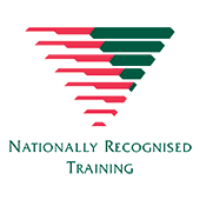If you’re considering a career in community services, you’re likely wondering what certifications or qualifications you need to get started. The field of community services is vast, offering a range of opportunities to make a real difference in people’s lives. But with so many options available, deciding which certification to pursue can be overwhelming. In this article, we’ll explore the top certifications for a career in community services, providing you with a non-biased overview to help you make an informed decision.
1. Certificate III in Community Services
The Certificate III in Community Services is often considered the entry-level qualification for those looking to start a career in this field. This certification provides a solid foundation in essential skills, including communication, working with diverse people, and understanding community development practices.- Who It’s For: This certification is ideal for individuals just starting out in the industry or those who want to formalise their existing experience.
- Career Opportunities: With this qualification, you can pursue roles such as a community services worker, support worker, or case worker assistant. According to the Australian Bureau of Statistics (ABS) community & welfare roles are expected to grow significantly, offering stable and rewarding career paths.
- Study Experience: If you’re curious about what it’s like to study this course, check out our article on What Is It Like Studying a Certificate III in Community Services with IST? for insights from current and past students.
2. Certificate IV in Community Services
The Certificate IV in Community Services builds on the skills gained in the Certificate III, offering more advanced knowledge and preparing students for higher-level roles within the sector. This certification covers areas such as case management, working with people with complex needs, and implementing community programs.- Who It’s For: This is a great option for those who already have some experience or have completed the Certificate III and are looking to advance their careers.
- Career Opportunities: Graduates can pursue roles such as case managers, community development officers, or senior support workers. The National Skills Commission highlights that community service roles, particularly those requiring higher qualifications, are in high demand across Australia.
- Further Study: The Certificate IV also serves as a pathway to more advanced qualifications, such as the Diploma of Community Services.
3. Diploma of Community Services
The Diploma of Community Services is a comprehensive qualification designed for those aiming for leadership or specialist roles within the sector. This diploma delves into areas like community development, social housing, and complex case management, providing the skills needed to take on more responsibility in the workplace.- Who It’s For: This is ideal for professionals looking to step into leadership roles or those who want to specialise in a particular area of community services.
- Career Opportunities: Graduates can move into roles such as program coordinators, community services managers, or case managers handling complex cases. For a deeper understanding of career outcomes, our article on the Top 7 Benefits of Working in Community Services offers valuable insights.v
If you’re considering a career in community services, you’re likely wondering what certifications or qualifications you need to get started. The field of community services is vast, offering a range of opportunities to make a real difference in people’s lives. But with so many options available, deciding which certification to pursue can be overwhelming. In this article, we’ll explore the top certifications for a career in community services, providing you with a non-biased overview to help you make an informed decision.
1. Certificate III in Community Services
The Certificate III in Community Services is often considered the entry-level qualification for those looking to start a career in this field. This certification provides a solid foundation in essential skills, including communication, working with diverse people, and understanding community development practices.- Who It’s For: This certification is ideal for individuals just starting out in the industry or those who want to formalise their existing experience.
- Career Opportunities: With this qualification, you can pursue roles such as a community services worker, support worker, or case worker assistant. According to the Australian Bureau of Statistics (ABS) community & welfare roles are expected to grow significantly, offering stable and rewarding career paths.
- Study Experience: If you’re curious about what it’s like to study this course, check out our article on What Is It Like Studying a Certificate III in Community Services with IST? for insights from current and past students.
2. Certificate IV in Community Services
The Certificate IV in Community Services builds on the skills gained in the Certificate III, offering more advanced knowledge and preparing students for higher-level roles within the sector. This certification covers areas such as case management, working with people with complex needs, and implementing community programs.- Who It’s For: This is a great option for those who already have some experience or have completed the Certificate III and are looking to advance their careers.
- Career Opportunities: Graduates can pursue roles such as case managers, community development officers, or senior support workers. The National Skills Commission highlights that community service roles, particularly those requiring higher qualifications, are in high demand across Australia.
- Further Study: The Certificate IV also serves as a pathway to more advanced qualifications, such as the Diploma of Community Services.
3. Diploma of Community Services
The Diploma of Community Services is a comprehensive qualification designed for those aiming for leadership or specialist roles within the sector. This diploma delves into areas like community development, social housing, and complex case management, providing the skills needed to take on more responsibility in the workplace.- Who It’s For: This is ideal for professionals looking to step into leadership roles or those who want to specialise in a particular area of community services.
- Career Opportunities: Graduates can move into roles such as program coordinators, community services managers, or case managers handling complex cases. For a deeper understanding of career outcomes, our article on the Top 7 Benefits of Working in Community Services offers valuable insights.

4. Certificate III in Individual Support
While not exclusively focused on community services, the Certificate III in Individual Support is highly relevant for those interested in working with specific populations, such as the elderly or people with disabilities. This certification provides specialised training in areas such as personal care, support for independence, and working within the community sector.- Who It’s For: This qualification is suitable for individuals looking to work directly with clients in roles like aged care workers, disability support workers, or home care assistants.
- Career Opportunities: The skills gained from this certification are in high demand, especially in the context of Australia’s aging population and the increased focus on disability support. If you’re considering this path, our article Is a Career in Individual Support Right for You? Understanding the Challenges could help you weigh the pros and cons.
- Further Considerations: For those concerned about the costs associated with this certification, our article on How Much Does It Cost to Study Certificate III in Individual Support? Discover our Fee-Free Option provides detailed information on potential funding opportunities.
5. Other Relevant Certifications
In addition to the certifications offered by IST, there are other qualifications you might consider depending on your career goals:- Certificate IV in Mental Health: This qualification is ideal for those who want to specialise in providing support to individuals with mental health challenges. The Australian Government’s National Mental Health Workforce Strategy 2022-2032 indicates a growing demand for mental health workers, making this a viable and rewarding career path.
- Certificate IV in Alcohol and Other Drugs: For those interested in working in addiction services, this certification offers specialised training in supporting individuals dealing with substance use issues.
- Diploma of Youth Work: This diploma is focused on working with young people, offering training in areas such as youth development and counselling.
Making Your Decision
Choosing the right certification depends on your career aspirations, current experience, and the specific area of community services you’re interested in. It’s important to research each option carefully and consider what will best help you achieve your goals. Here’s a simple decision-making framework to help guide you:- What Are Your Career Goals?
- Are you looking to enter the workforce quickly, or are you aiming for a leadership role in the future? Your goals will determine whether an entry-level certification or an advanced diploma is the right choice.
- What Level of Experience Do You Have?
- If you’re new to the field, a Certificate III may be the best starting point. If you have experience or have already completed a Certificate III, consider advancing to a Certificate IV or Diploma.
- Which Area of Community Services Interests You Most?
- Think about the specific populations or issues you want to work with, such as youth, mental health, or aged care. This will help you choose the certification that aligns with your passions.





